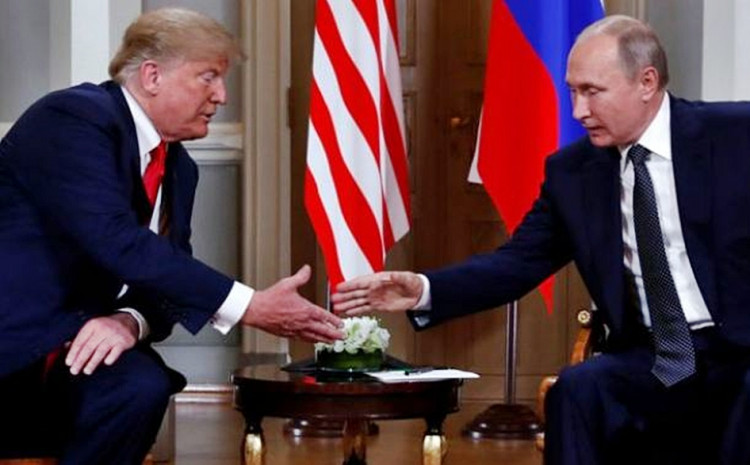Former CIA Director Leon Panetta has made a startling claim, alleging that Russian President Vladimir Putin has cultivated former U.S. President Donald Trump as a "source" to manipulate and influence American policies. Speaking on the One Decision podcast, Panetta highlighted that the nature of Trump's relationship with Putin raises serious concerns about the former president's loyalty to the United States.
Panetta's remarks come in response to new claims from journalist Bob Woodward's book, War, which alleges that Trump and Putin have maintained private communications since Trump left office in 2021. Panetta described it as "very unusual" for a Russian leader to maintain such frequent contact with a former U.S. president, noting that Putin is skilled in "working a source" to further his interests.
"Putin knows how to work a source, and he's got a source that is very near the top in this country," Panetta stated. "Trump has turned into a source for Putin, and somebody who can help him manipulate what he wants to get done." The former CIA chief's comments reflect growing concerns that Trump's ongoing communication with Putin could have implications for U.S. national security.
The allegations have drawn widespread attention, particularly given the long history of scrutiny surrounding Trump's relationship with Putin. During his 2016 presidential campaign, Trump publicly encouraged Russia to "find" Hillary Clinton's missing emails, prompting accusations of collusion. The subsequent special counsel investigation led by Robert Mueller concluded that while the Russian government actively sought to benefit from a Trump presidency, there was no definitive proof of coordination between Trump's campaign and Russian interference efforts.
Panetta didn't hold back on his concerns regarding Trump's recent actions and statements. He recalled the 2018 summit in Helsinki, where Trump appeared to side with Putin over U.S. intelligence agencies regarding election interference allegations. "He basically said he trusted Russian intelligence more than he trusted United States intelligence," Panetta said on the podcast. "That moment confirmed for me that Trump is a very dangerous person."
The latest revelations from Woodward's book allege that Trump and Putin had at least seven private phone calls since early 2021, some of which reportedly involved discussions about sensitive geopolitical issues. Trump has denied these claims, with his campaign communications director, Steven Cheung, dismissing them as "made-up stories" from a "truly demented and deranged man."
Kremlin spokesman Dmitry Peskov also denied the existence of these private calls, labeling the reports as "not true." However, Peskov did confirm that during the early days of the COVID-19 pandemic, Trump had sent a shipment of COVID-19 tests to Russia at Putin's request, a claim that had previously been denied by Trump's team. According to Peskov, this exchange took place when such tests were "rare items," highlighting the collaborative effort to manage scarce resources.
Panetta raised additional concerns about Trump's decision to engage in regular dialogue with a leader he described as a "tyrant" and an adversary of the United States. "The mere fact that a former president of the United States is having regular conversations with our primary adversary raises real questions about where his basic loyalty lies," Panetta said. "Is it really to the United States of America, or is it to Donald Trump?"
The accusations have reignited debates over Trump's ties to Russia, with critics questioning the former president's motivations. Despite the denials from both Trump and the Kremlin, Woodward's account suggests that Trump had been warned by Putin not to disclose details of their discussions, fearing political backlash. Woodward's book also details that Trump sent COVID-19 tests to Russia during a period when they were in limited supply in the United States, allegedly at Putin's personal request.
The ongoing scrutiny of Trump's relationship with Putin has persisted even as Trump continues to publicly praise the Russian president, calling him "smart" and boasting of their "very good relationship." In contrast, Trump has claimed that Putin would not have invaded Ukraine if he had remained in office, insisting that he could broker a peace deal between Kyiv and Moscow if given the chance.
Panetta expressed frustration over Trump's continued admiration for Putin, arguing that Trump's actions display a naiveté regarding the true nature of the Russian leader. "Donald Trump, in many ways, is naive about who Putin really is," Panetta said. "He [Putin] is not to be trusted, and that's what worries me."




